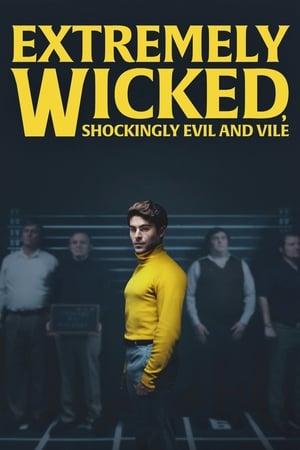
Extremely Wicked, Shockingly Evil and Vile
It's safe to say that Zac Effron wasn't cast to play Ted Bundy for the same reasons that landed Charlize Theron the role of Aileen Wournos. He can't act, but then he doesn't need to; he looks the part even if he can’t be the part — and he needn’t be it, either; unlike Monster, this movie makes no attempt to probe into Bundy's psyche. If one is looking for any motive, reason, or explanation for his crimes, one will not find them here. Who or what exactly is supposed to be "wicked" and "vile"? The judge (John Malkovich) who sentences Bundy uses those words to describe his crimes. Effron replies: “I do not accept the sentence because it is not mine. It is a sentence from someone else who is not here today.” Director Joe Berlinger seems to agree with that statement. That is, he focuses on the charming, charismatic side of the sociopath, neglecting to contrast those traits with the character's less agreeable (to put it mildly) attributes. Where's the wickedness? Where the vileness? Like a true pseudocumentary filmmaker (he also made the companion piece Conversations with a Killer: The Ted Bundy Tapes, which, as described on Rotten Tomatoes, "skirts introspection, making it just as illusive as its subject"), Berlinger doesn't let facts get in the way of a good story (or a bad one, as this case proves to be). For example, at the end we are informed that Liz Kendall, Bundy's romantic partner, "has stayed sober" since the events of the film. This took me completely by surprise; I saw her imbibe a couple of times, but never once did I see her in any condition resembling a state of drunkenness. There is a much more serious omission, though. It's not until the film's closing moments (in overtime, as it were) that we see, or rather catch a glimpse of, Bundy committing a crime. It's not until the epilogue that there is an admission of guilt. By then it's is too little, too late (there is also a series of brief flashbacks to different points in the film, as if they were clues. Why? This is not a thriller, or at least it shouldn't be one. The only redeeming quality about those flashbacks is that they include a reminder of one of the movie's two instances of unintentional comedy; i.e., when a dog apparently mistakes Bundy for Damien Thorne. The other instance is of course James Hetfield, officer of the law).
